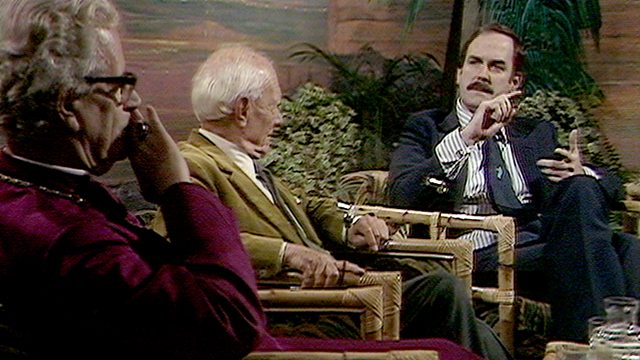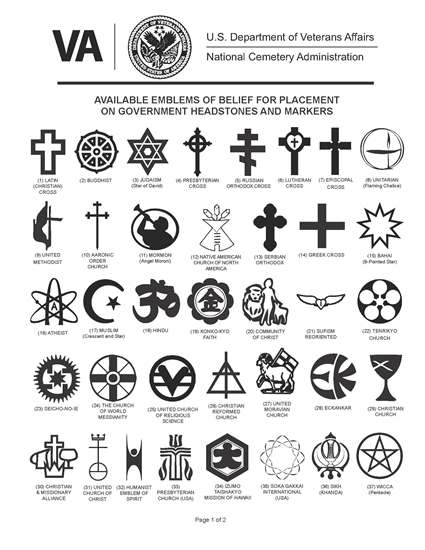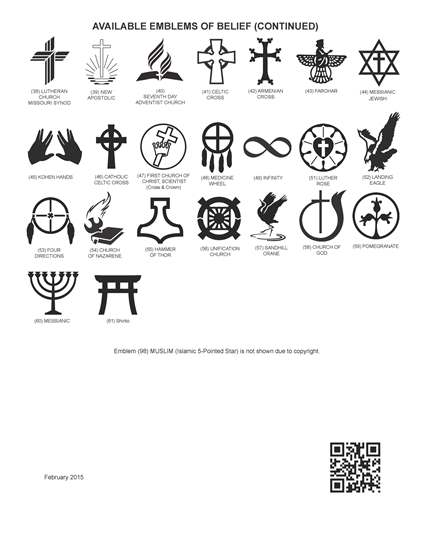
In November 1979, following the release of Monty Python’s The Life of Brian, a remarkable debate took place on late-night British television. Forty years later, that debate, between representatives of the Britain’s Christian establishment and Python members John Cleese and Michael Palin, is just as riveting and relevant as the day it took place.
The film, which tells the story of Brian of Nazareth, unlucky enough to be born on the same day as the subsequently more famous Jesus of Nazareth. As the Irish Examiner summarizes:
After joining a Jewish, anti-Roman terrorist group, The People’s Front of Judea, he is mistaken for a prophet and becomes an unwilling Messiah. All this eventually produces the film’s most remembered line, courtesy of Brian’s mother Mandy (Terry Jones). “He’s not the Messiah,” she tells us, “he’s a very naughty boy”.
The movie was met with instant controversy when it was released. I remember local churches in my Florida hometown passing out leaflets denouncing the comedy as blasphemous. The film was banned in Ireland, Norway, and parts of Britain, and elsewhere in the US, crowds picketed outside theaters where it was showing.
With the controversy raging, Cleese and Palin, along with the Anglican Bishop of Southwark Mervyn Stockwood and journalist Malcolm Muggeridge, were invited on to the program Friday Night, Saturday Morning to debate the film and its merits.
What followed was, and remains, riveting viewing. Andrew Todd explains:
Perhaps the most famous element of Life of Brian blowback was a televised debate on talk show Friday Night, Saturday Morning – a show whose host changed each fortnight, and whose hosts selected their own guests. Moderated by Jesus Christ Superstar lyricist Tim Rice, the debate pitted John Cleese and Michael Palin against Catholic bishop Mervyn Stockwood and broadcaster and Christian convert Malcolm Muggeridge (both of whom were likely selected, in part, for their stubbornness). The topic: Life of Brian, and the accusation that it was a work of blasphemy.
the first section simply has Cleese and Palin discussing the making of the film, speaking as eloquently and amusingly as you’d expect from legendary comedians at, arguably, their peak (Cleese had just wrapped Fawlty Towers as well). Upon Muggeridge and Stockward’s entrance, things become hostile, as the two old men demonstratively expound on their own faith and fire veiled (and unveiled) insults at the two Pythons. Stockward in particular rarely makes eye contact with his ostensible opponents, instead preaching to the audience or into the ether, refusing to allow the filmmakers to respond.
Cleese and Palin do their best to keep their cool, continuing to defend their film as it’s labeled to their faces as “a little squalid number,” “tenth-rate,” “buffoonery,” and “unworthy of an educated man.” Closing out with Stockward proclaiming that the Pythons would “get [their] thirty pieces of silver,” the sham of a debate is a fascinating insight into both the Pythons’ vision for the film and the closed-mindedness of certain elements of the Church. Indeed, Muggeridge and Stockward, for all their bluster, end up proving Life of Brian’s thesis without even a hint of satire.
Cleese and Palin make a fundamental point that goes right over the heads of their interlocutors. Far from making a film that was intended to undermine people’s faith, they wanted to, and did, make a film that would make its audience laugh, and but more importantly even think a little bit.
It is the kind of debate that is frankly unthinkable on television today, with serious people (yes really) dealing with a serious topic in way that is, for the most part, intellectually and spiritually honest. If you ask me to score the event, my card gives it to the Pythons, hands down. But you should watch it and make up your own mind.
That’s what Cleese, Palin, and the other Pythons wanted you to do all along.

